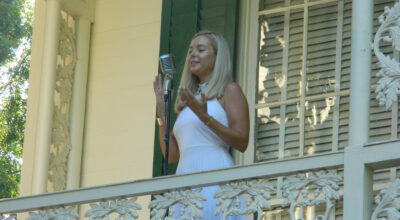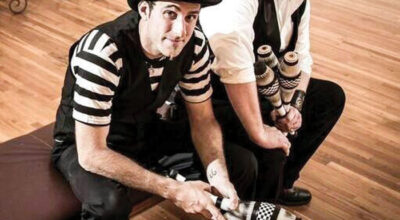Something wicked at work in 'The Cove'
Published 12:00 am Friday, June 22, 2012
“The Cove,” by Ron Rash. Ecco, HarperCollins. 2012. 255 pp. $25.99.
By Deirdre Parker Smith
dp1@salisburypost.com
SALISBURY — “The Cove” is a timely novel, a story of suspicion, hatred and ignorance, themes which seem to run uninhibited through our society.
But Ron Rash’s novel takes place during World War I, focusing on an ill-begotten brother and sister and the dark mountain cove that is their home.
Hank Shelton is a wounded veteran, having lost a hand in the trenches of France. His sister, Laurel, is a bright young woman who has been shunned all her life because of a birthmark, a purple stain on her shoulder.
The townspeople of Mars Hill think she’s a witch and go so far as to place bottles, broken glass and salt on the path into the cove to protect themselves from her spells.
They say the cove is cursed, and even though Laurel doesn’t believe it, sadness, loneliness and loss mark her time there. Hank and Laurel’s parents came to the cove to farm, but the cliff blocks the sun, and the chestnut trees their father plants quickly fail from the blight. Both parents die slowly with much suffering. While Hank is fighting in World War I, Laurel is alone at one of the loneliest places in the mountains.
If things go as Hank plans, she’ll be alone again, and soon, after he marries Carolyn Weatherbee.
“Worst of all was the cabin. No matter the time of day or season or how many lamps were lit, it remained a dank dim place that, as long as Laurel could remember, always smelled of suffering.”
Rash brings in a tiny speck of light when he introduces the mute flute-playing stranger Laurel finds in the woods. She leaves him alone until she sees him red and feverish from bee stings. When she takes him back to the cabin, she changes all their lives forever.
How one innocent act of kindness can create a maelstrom of misery is slowly played out in Rash’s novel. No good deed goes unpunished.
The musical man only has a note saying he is Walter Smith and wants to get on a train to New York.
Suspicious, Hank keeps his loaded shotgun handy. There’s no telling, he reasons, who might turn up in the woods. Maybe his instinct is spot on.
But Laurel nurses Walter until he’s able to get around again, and suggests he might be able to help Hank, who is doing everything he can to improve the farm before he leaves.
Walter’s flute creates a sound that connects deep in Laurel’s soul, sweet and sad and otherwordly. The music is a clue to who he really is, and it will linger on.
Silent Walter proves to be a hard worker, helping Hank build a fence, then helping him dig a new well.
Consider the depth and darkness of the well a reflection of the cove, and of the future, and feel the chill rising from the earth, just as Walter does, down in that dank hole.
Laurel falls in love with Walter, his quietness and his music, and they become lovers. Hank makes time to leave them alone, seeing Walter, despite his handicap, as the one hope for Laurel — one person who accepts her for who she is, the birthmark simply that.
Back in town, the hunt for Germans is on, with the passive-aggressive Chauncey Feith demanding books written in German be removed from the Mars Hill College library. An Army recruiter, Chauncey has proven one thing over and over — he’s a bully and a coward the townspeople hate.
His latest crusade is to remove the elderly German professor, whom he accuses of sharing secrets with “the Huns” from the college.
Laurel and Hank have one friend in the cove, the widower Slidell, who takes them into town when they need supplies and helps them on the farm.
Town is a bad place for the Sheltons and Slidell, with prejudice and hatred in full display. Town is full of suspicion and quick judgment, full of people like Chauncey.
What happens to these innocent people will shock you and remind you of the consequences of ignorance and bigotry. In an almost Gothic ending, justice denied becomes justice served.
The prologue of a TVA worker coming to inspect the land before a dam swallows up the cove is largely unnecessary and quickly forgotten. It’s only purpose seem to be to try and prove the story that follows is real (at least in fiction).
Perhaps the symbolic drowning of sorrows makes up for the horrors of the story.
“The Cove” certainly creates the feeling of another time, another place — one we don’t want to go back to at all. The mountains, instead of being idyllic, are threatening, the walls of the cove, like the walls of the well, on the verge of caving in and destroying everything.
Rash writes from somewhere deep within, capable of creating beauty in odd things and fear in the familiar.
“The Cove” should serve as a warning — the darkness in your heart can become deadly.
Discuss ‘The Cove’ Thursday night at Trinity Oaks
Summer is here and the Summer Reading Challenge will get a boost with a discussion of Ron Rash’s “The Cove” on Thursday night at Trinity Oaks.
A lot of people are talking about “The Cove,” from fans of Rash to people accepting the challenge. The book is dark and foreboding, with plenty of atmosphere from the North Carolina mountains and vivid characters.
Forrest Anderson, a Catawba College English professor, will be on hand at the event Thursday at 7 p.m. Sponsored by the Clio Book Club, this talk and one on Aug. 9 about “A Land More Kind Than Home,” is a way for more people to get involved in the challenge, a chance to discuss the books before the final presentation on Sept. 27, which will also feature author Jennifer Hubbard and her book, “Paper Covers Rock.”
Deal Safrit suggested both “The Cove” and “A Land More Kind Than Home,” by Wiley Cash, for the challenge, and it looks like his choices were solid. Both books are selling well and earning critical acclaim. Anderson has met both authors.
The Thursday night book talk is free, as are all events in the challenge, but donations to the group are happily accepted at any time to help with the cost of mailing, food for the reception and other expenses.
Contact Barbara Setzer at 704-633-5779 or sgrayhouse@bellsouth.net for information on giving.
Look for a review of “A Land More Kind Than Home on Aug. 5 in the Salisbury Post.
And see the authors on “North Carolina Bookwatch.”



